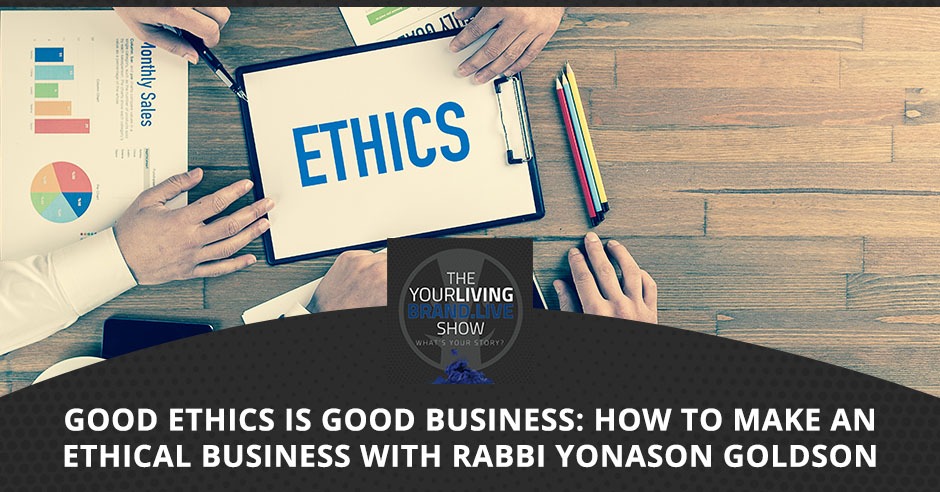
Good ethics is good business. This is what Rabbi Yonason Goldson from Ethical Imperatives, LLC believes. In this episode, he joins host Ben Baker to explain to us what ethics in business is all about and why it is imperative if you want empowerment and transformation. Are you limiting or putting yourself at a disadvantage in life? How does FOBO, the Fear Of a Better Option, affect our lives? Why is it important to take care of your people? What is the structure of ethical decision-making? What are the things businesses should be obligated to do? Rabbi Yonason answers all these questions and more, guiding us deeper into creating a business that creates a more ethical society and a better world.
—
Listen to the podcast here:
Good Ethics Is Good Business: How To Make An Ethical Business
With Rabbi Yonason Goldson
We have Yonason Goldson from Ethical Imperatives on the show. It is going to be a great conversation. We’re going to talk about relationships and how COVID has changed how we engage and trust each other. Yonason, welcome to the show.
Thank you, Ben. I’m delighted to be with you.
I was excited. I heard you on my friend Deb Coviello’s show. I loved the conversation that the two of you had. Shout out to Deb. She’s been a guest on my show. I’ve been a guest on her show. I love when I hear a great guest. When I hear somebody that was insightful and interesting, I’m like, “I got to get them on my show,” and we got to have a conversation. That’s what it’s all about. It’s finding interesting people and talking about interesting things. Your reason for coming from where you are is the whole ethical imperative. Why don’t you tell my readers a bit about you, where you came from, where you are, where you’re going and then we can get into the topic.
Where I came from is relatively easy, where I’m going is a little more complicated. I like to start with my college career. I studied English at the University of California. What does one do with a degree in English? You could do what I did. I don’t necessarily recommend it. I put in a backpack and went hitchhiking across the United States for half a year. After that, across the Atlantic, went backpacking across Europe. After a year traveling, I ended up in Israel. I went through an unlikely series of events. I reconnected with my Jewish roots, although reconnected isn’t quite the right word because I grew up with no knowledge whatsoever of Judaism, what it meant or what it was all about. I discovered something I never would have expected, this vibrant culture of deep thought, profound ideas, meaning and purpose changed the whole trajectory of my life.
I ended up living in this role for nine years. I met my wife, we had our first two children and eventually earned my Rabbinic degree, became an Orthodox Rabbi. I embarked on my high school teaching career, teaching young people the wisdom that I had studied, learned, and I wanted to give them means of recognizing how to find direction and purpose in their lives. I taught for one year in Budapest, Hungary. I taught for two years in Atlanta, Georgia, and twenty years in St. Louis where I am now. I retired in 2016. That’s when I started my business as a professional speaker, trainer and coach, trying to communicate the 3,000 years of Jewish wisdom to a broader, secular audience, take those universal values and impart to professionals why good ethics is good business and the benefits of intellectual integrity. The speaking business took quite a hit like many people have under COVID. Like a lot of people, I’m trying to figure out how to adapt to the virtual world. That’s part of what we’re doing here.
Good ethics is good business. Share on XI love the comment, “Good ethics is good business.” Let’s stick a pin in that and come back to that. I want to talk about your time hitchhiking, because here’s something that almost no one does anymore. For a lot of different reasons and safety reasons. It’s not something that’s done anymore. I want to find out what was the biggest insights you learn by being in a place where you are completely and totally at somebody else’s mercy. You stand by the side of the road, you put your thumb out and you’re going to go as far as the next person’s going. You take it and you go from there. To me, that’s an explorer mentality. What are the things you learned about yourself by doing that?
I have two big takeaways, and interestingly, one of them, I only came to this in the summer of 2020, as I was reconfiguring my keynote for a virtual platform. This idea that I knew, but it crystallized. It goes to my first day hitchhiking. I had taken a train from Palm Springs, California to Albuquerque New Mexico. I got up the next morning and went out on the road and stood there. An hour went by, lots of cars went by and I started to wonder, “Is this going to happen?” I had a brainwave. I reached in my backpack, took out a notebook, a pen, and in big block letters, I wrote one word, “Denver.” Within a few minutes, a car pulled over, the driver invited me in, and I sat into the passenger’s seat and he turned to me and he said, “I’ve never picked up a hitchhiker in my life but I’m going to Denver. I saw your sign and I thought I should pick him up, give him a ride.” The lesson I learned from that is that when you have a destination, it gives you credibility. It projects a sense of purpose, direction and trust. You’re not just floating and wandering aimlessly. Also, when you have a destination that someone else sees your destination, wants to go there, they’ll want to go with you because we like traveling together. We like alliances, partnerships and camaraderie.
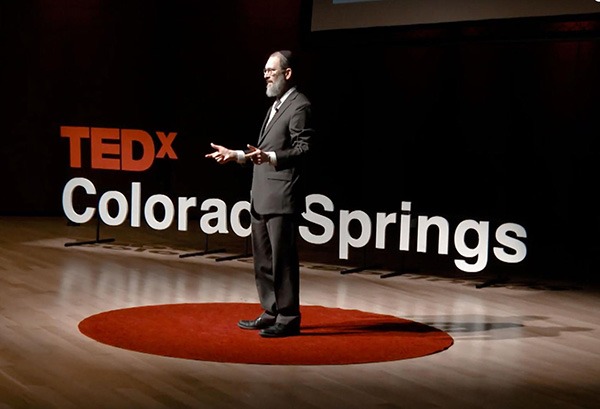
It’s better to go on a journey with someone than to go on a journey by yourself. It took me long to crystallize that thought. When there is much distraction in our lives and we have this sense of many opportunities, possibilities and potential and potential is a wonderful thing if we do something with it. There’s a feeling that if I commit myself to a particular course of action or goal, I’m eliminating other options. By eliminating the options, I’m giving up, I’m relinquishing that potential. We hold onto the potential and we end up not achieving because we don’t want to make the commitment. It’s a profound mistake, because ultimately, it’s the commitment and the sense of purpose that gives meaning and ultimately happiness to our lives.
First of all, it’s extremely profound. I heard the Fear Of a Better Option. They call it FOBO. It’s by the same guy that coined the term FOMO, the Fear Of Missing Out, where we’re worried about, “Is there going to be a better option? What’s next? There are many possibilities in front of me, so I do nothing.” You’re so worried about, “If I do this, I might not get to do that.” We all need to pick a direction. We all need to commit and go all in. If it doesn’t work out, it doesn’t work out. You learn from that and you move forward. We all need to sit there and say, “Yes, there is a multitude millions of options in front of us, but we can’t do everything.”
I posted a meme on this from Rabbi Lord Jonathan Sacks, who passed away. Extraordinary individual. He said, “We’re living in a time of maximum choice and minimum meaning.” I think about it. I go into a department store to buy toothbrush and it’s almost paralyzing, a whole wall of options.
It's better to go on a journey with someone than to go on a journey by yourself. Share on XThat’s the Colgate or that’s the Crest. Never mind Colgate versus Crest versus whatever. If you go look at the Crest toothpaste, there’s 32 different options.
Yes or 36 varieties of Ragu spaghetti sauce. Has anybody tried them all? If you did, could you remember which one you liked and which one you didn’t? Choices are great when they mean something, but choices that are irrelevant or trivial. There’s a sense of, “Whatever which one I’m choosing, that means there are 35 varieties I haven’t chosen, what might I be missing out on?” We don’t enjoy the choices that we make because we’re too concerned with the ones that we’ve passed up.
It’s the restaurant that has pages and pages of options. You watch the average person who’s never been to that restaurant before and they’re paralyzed. You could watch them and they go to the waiter, “Give me another five minutes.” There were many different choices that they don’t know where to go, but when I walk into say a restaurant and I’ve been there 50 times before, “I’ll have a number four.” There might be 30 things that I’m going to choose, but I’m always going to have a number four because I always have a number four. That may be comforting because you know you’ve picked something, you’re going to go with it. On the other hand, that might be something to discuss. Are you limiting yourself? If you crawl into being a creature of habit and not being willing to try new things every once in a while, are you also putting yourself at a disadvantage in life?
This is the paradox of being human. We’re constantly shifting back and forth between these opposites. In this context, it’s the opposite of the familiarity. The security of the familiar versus expanding our horizons through experimentation. We should be doing both. If you want to extend it into our political differences, conservatives tend to be more focused on tradition and establishment. Liberal-minded people are more focused on novelty, exploration, potential and possibility. The problem that we’re facing in a society is that we’re not talking to each other anymore. We don’t trust each other anymore. Liberals only associate with liberals and conservatives only associate with conservatives.
Conservatism can slip into reactionaryism and liberalism can mutate into irrational utopianism. We’re supposed to be engaging with each other because both philosophies are sound and necessary. It’s only a healthy society when there is an engagement and interaction. When you have the constructive disagreement that comes from talking out, hashing out, listening to the other side, understanding where they’re coming from, formulating a response, recognizing why somebody believes differently and recognizing where you can find common ground. Every once in a while, maybe I was wrong. Maybe I should re-examine my own beliefs and points of view.
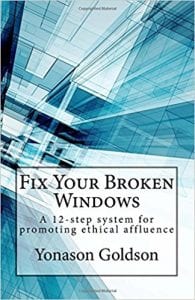
We are all stronger together. That’s where the whole discourse of debate came from. Debate came from, “I have my point of view. You have your point of view,” but when we can discuss it, when we can engage and try to understand each other, we may not change each other’s point of view, but we make be able to come to a common ground that is going to be better for all of us. That is something, whether it’s politics, business or personal relationships is becoming less and less of the norm of people sitting down and try to understand each other, instead of being rooted in their own beliefs, that they have this ultimate belief that my idea is ultimately right. Therefore, their ideas ultimately wrong. That’s the challenge of society that we truly need to overcome.
This is the topic of my TED Talk, which is about ethical communication. You asked me about the takeaways from hitchhiking and the story that I tell there is that I discovered that when you get into the passenger seat of a car, you have the opportunity to pay for your ride, not in money, but by being of service to the driver. What many drivers want is someone to listen.
They want company and somebody who’s would be an ear that they didn’t have.
Strangers on a train principle. I’ve had drivers tell me more than once that they were sharing things with me that they never told their wives, their best friends, their parents or their kids, because they knew they weren’t going to see me again. They could unburden themselves. I realized that my job was to listen was not to respond, tell my story or rebut, just to let them have that opportunity. I wasn’t thinking about what I was going to say in response, I ended up paying more attention. Most of our conversations or what my college psychology professor called, dialogues of the deaf. I used to ride buses a lot or sit in airports and you could hear people’s conversations going on around you. They’re not talking to each other and leapfrogging over one another. It looks like they’re having a conversation, but there’s no real exchange of ideas. When you stop and listen, you understand people. When you understand the people around you, you understand yourself better. This is how communities and relationships form. Without that conversation, we’re all living in isolation.
That’s the one thing that podcasting has made me better at. It’s made me a better listener, because if I’m waiting to interject with my next question, “I got my next question, I’m going to give this zinger.” I’m missing 65% or 70% of what you’re saying, because I’m focused about what I’m going to ask you next, that I haven’t heard what you said. If I sit there and it ends up being a conversation, and my response has come naturally out of the conversation that we’re having, I find it elevates our conversation. I find that it makes every podcast better. Not just mine, most of the top podcasters I’ve ever listened to are phenomenal listeners. I find this a skill I’m working on daily to make myself better, because you can always be a better listener. You can always be more intent. You can always listen more critically to be able to think a bit more about what is the person saying, not just the words out of their mouth, but what’s the ideas that’s behind it. I love that thought process.
Your potential is a wonderful thing if we do something with it. Share on XFrom the other side, I’ve been on about 80 podcasts. Sometimes when the host will dig into what I’ve said, they’ll end up drawing out for me a deeper explanation than I had previously been able to articulate. I’ve come to understand my own subject of expertise better because of a host who followed up on a question, asked an insightful follow-up and gave me the opportunity to think through my own ideas and articulate them in a new way that yielded new understanding.
What would be an example of that? Let’s dive into that, because that’s an interesting thing. That comes down to our initial point, how do we engage and trust each other? What are the things where you’ve had those a-ha moments? Where you’ve sat there and go, “I never truly knew about myself.” What’s the one thing that over the last few years, over these 80 conversations has given you insights that have made you better at what you do?
It’s a question of articulating the same idea in a more concise or a more effective way. For instance, one of the lines I use in talking about ethics or the lines I have used is that compliance is often the enemy of ethics. When you try to legislate ethical behavior, what you do is you short circuit the ethical mindset, which is our willingness to look at choices that we’re going to make and evaluate them not based on, “What can I do. What can I get away with,” but, “What’s the right thing to do?” I was on a show with Diane Helbig, in the course of the conversation, what came out was that ethics begins where compliance ends.
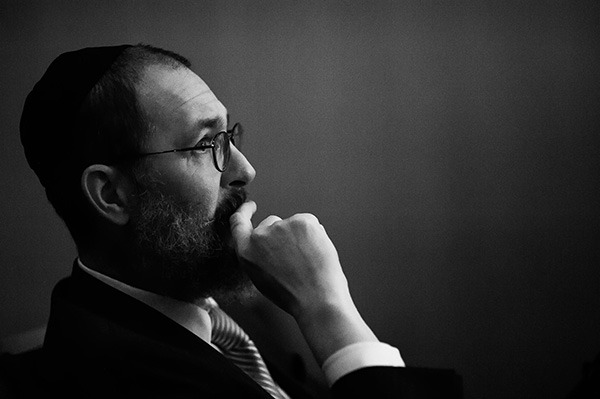
It’s interesting. Explain.
It’s saying the same thing. It’s phrasing it in a more tangible or it may maybe even a more positive way than I had said before that compliance is the enemy of ethics. That’s a problem. Ethics begins where compliance ends because we have the rules of compliance, but that’s meant to be a guide, not an excuse to avoid ethical decisions, but a foundation on which we can build a structure of ethical decision-making. To see compliance as a starting point, rather than an end point is critical to creating an ethical culture in one’s business and then by extension into one’s community, family and every aspect of our lives.
It's the commitment and the sense of purpose that gives meaning and ultimately happiness to our lives. Share on XWhen I think of compliance and business, I have this flashback to working for a company and going through ISO 9000 compliance several years ago. The joke was we could have somebody die on the floor of the warehouse, but as long as we filled the paperwork out properly, we were still going to get our ISO compliance. That was the joke that was running through. It seemed more about checking a box and making sure your paperwork was in order, than making sure that people were truly safe. That’s a good place to start the conversation where you were talking about the business of ethics or the ethics of business, is that enough? Is that the first tick of the box to be able to have a business where we truly take care of the people, both inside the company, the people that engage with the company and the people who sell to the company. What are the things we as businesses should we be obligated to do? Not from a financial point of view, but from a moral point of view to make sure that people are taken care of within engaging with our operation.
Your question is the answer. If managers, administrators, bosses and CEOs ask themselves that question, then they’re on the right track. If they’re not asking the questions because they’re in compliance, then you got a problem. In my ethics keynote, I tell the story of Paul O’Neill who was the CEO of Alcoa and later become the Treasury Secretary under George W. Bush. He took over in 1987. The company was in a terrible state, the energy prices, labor cost, the sluggish economy, and smaller and more nimble companies were gobbling up market share. His first day as CEO, he announced his grand plan to save the company by making his number one priority, worker safety. The moment he finished speaking, the investors stampeded out of the room. One of them called his twenty biggest clients and said, “The board put some crazy hippie in charge. He’s going to kill the company, sell everything.”
He later said this is the worst piece of advice he gave in his entire career, because a year later, Alcoa’s profits hit an all-time high. How? Paul O’Neill took responsibility for tracking days lost to injury by telling his executive board that they were responsible when a worker was killed repairing a piece of machinery. He put out suggestion boxes throughout every plant, asking for employees to report safety hazards. What they did? The company spent $3 million in two months to fix potential problems. What happened next? Employees started offering suggestions, not just about safety, but about all areas of operations, because they saw that the company was responding to the suggestions. They felt empowered to contribute their ideas. From 1987 to 1999, under Paul O’Neill, Alcoa loom in an increased in market value, 900%.
Net income increased over 750% because Paul O’Neill demonstrated that he was looking out for his employees, so they took responsibility to look out for the company. I like to quote the study by the Trust Edge Leadership Institute that asked employees what they want most from a job. The number one answer they gave is, “A boss we can trust.” How do you become a trusted boss? Not by ticking boxes, but by creating a culture that projects concern. You see your employees as partners, not as assets, you’re concerned for their wellbeing. You create an environment in which people feel appreciated and therefore appreciate the opportunity they have to contribute to the company. That’s the way you build a successful enterprise.
When I teach leadership training, the thing that I teach people is you have to truly listen to people. You have to understand what their value is and you have to compel them to engage. It’s all about how you motivate people on their own thing. When people feel listened to, understood and valued, it’s amazing what they will walk over coals to do for a company. When they feel that they’re being taken care of by the company, when they feel that the company is working for their best interest and they’re not just a number on a spreadsheet that can be replaced at any given time, it’s amazing how people will step up and say, “We could do this better. If we change this, if we move this line around a little better, we can get in our 30% out of this production line.”
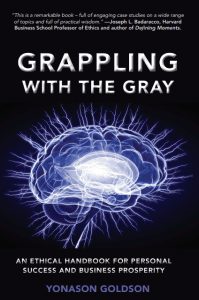
If nobody ever asked these people what they think, they’re never going to say anything because they don’t think that they matter. I love what you’re saying about that is how do we teach leaders to care? How do we teach leaders to understand that they need to develop trust? It sounds so simple, but it’s not. It’s one of the hardest things that leaders are ever going to do in their life is to learn how to care about people or learn how to develop trust. I’d love to hear your thoughts on that.
That’s a question I’ve been grappling with for a long time on many levels when I taught high school. How do you get students to care? I can offer them the most interesting, compelling, valuable ideas. If they’re not receptive, it doesn’t make a difference. It’s not going to go in and penetrate. When you’re dealing with CEOs, you would hope that there is a little more interest in understanding those ideas, but the starting point has to be and what I said in the beginning is that good ethics is good business. The data on this is compelling.
When you look at the companies that are ranked highest for a culture of ethics and trust, you see that individuals in that company are more productive. They’re more engaged and more aligned with the sense of company’s sense of purpose. They’re more connected with their colleagues. They’re less prone to burnout and companies grow faster and more steadily over time. Every rubric tells you that you’re going to have a more successful company. The problem is that as human beings, we are creatures of contradiction and paradox. Our short-term interests are often at odds with our long-term goals and long-term values. Simon Sinek talks about this at great length, the damage done by quarterly reports because you’ve got to hit this benchmark and if you hit it, you’re successful. If you miss it, you’re unsuccessful.
What if you’re on a trajectory that you’re not going to hit it now, but you’re going to exceed it six months from now, but you’re fixated on the quarterly returns that you short circuit your long-term success by artificially creating some short-term accomplishment. It doesn’t make any sense because we should be in this for the long game, but there are all these pressures, with your stockholders, your stock value and your reports. How many times do you hear reports that such and such company fell 10% on the stock market because they projected earnings that were going to be short of those they had previously projected? It’s madness.
They could have missed it by pennies on the dollar, quarters of pennies on the dollar and they get brutally killed in the stock market.
We don't enjoy the choices that we make because we're too concerned with the ones that we've passed up. Share on XThe pressure to meet those benchmarks ends up wiping out the long-term vision and the common sense. It should be focused on sustained measured growth because we’re in this for the long game.
As companies grow and they go from being private to public, and they become more beholden to their stockholders, do you think that the ethical dilemma becomes more and more diversified? As people are less willing to look at the ethical ramifications of business as they become more beholden on a stockholder versus the employees and the customers that they originally served?
That’s a real concern. I don’t claim to have the business expertise to dissect the dynamics of all the different factors, but the more pressure there is to meet some artificial standard or measure of success, then the more pressure is to do whatever you need to do to get there.
Calling all PhDs, if you’re looking for a dissertation, there you go. I’d love to read the dissertation. If everybody was taking up and do a dissertation on this that would be phenomenal to read.
The general principles, whether they apply on a massive corporation, a small business, to politics, communities, or our relationships with our friends and family. We’re in a time where the dynamics of our interactions are different from what they have been, that we have to continuously recalibrate. There’s a phenomenon, which makes my blood boil, ghosting. I’ve had interactions that I cannot wrap my head around. I’ll have a conversation with somebody, we’ll agree on a path forward and then nothing. No response to emails and phone calls. What is difficult about telling somebody, “Even though we had a good conversation, I don’t see that I’m going to be able to follow up the way we wanted to. I’m going to go in a different direction.”
When you understand the people around you, you understand yourself better. Share on X“Thank you for your time.”
Yes. Why are you wasting my time making me come after you trying to find you? Why can’t you show the simple, common courtesy of being communicative? People are embarrassed or I don’t know. It baffles me.
I wrote an article on that. It’s called, We Need to Learn How to Say No. It was for Carol Roth. It’s a fascinating dilemma that people are afraid to disappoint, be controversial, or to put themselves out there where they might get hurt, that it’s easier for them to walk away and pretend the conversation never happened than to say, “Thank you, but no, thank you.”
You can get away with it in a virtual world. You simply don’t engage, but is that the way we want to treat each other? Is that the way we want others to treat us? You’re cutting yourself off because maybe things are going to look different and you’re going to be afraid to go back to the person, because after the way I treated them last time, why are they going to want to have anything to do with me now?
That therein is the dilemma. There is the dilemma of business, ethics, humanity and how it all rolls up into trust. How do we trust somebody who’s ghosted us? How do we trust somebody that doesn’t stand up, say what they mean, mean what they say and take responsibility for their actions?

That’s my definition of ethics. It’s a discipline of recognizing and taking responsibility for the impact our actions have on other people, because they do. Even indirectly. Simon Sinek tells this story that I love. He and a friend are walking down the street talking and a few yards in front of them, the person has a backpack that has split open and papers are falling out of it. As they’re talking, without even thinking, they reach down, they pick up those papers as they’re going, they catch up with the guy and say, “Here, these fell out of your backpack. Be careful.” The guy said, “Thank you.” They go on like nothing happened. At the next signal, they’re waiting for the light to change, somebody says, “I saw what you did for that guy. That was cool.” Is it that unusual that somebody would act that way? I see somebody’s having a problem, I’m in a position to help with little effort and this is a novelty that I would put myself out for that person? It’s a little scary.
I bring it down to, we don’t teach people how to hold a door for anybody anymore. If we taught our children to hold the door open for somebody, man or woman, it doesn’t matter, old, young, whoever, you hold the door open. It’s not the fact that you’re holding the door for them, you’re teaching them to help somebody else from a very young age. That’s what we do for each other. We work together. It does not make me any less to do something for you. Our society needs to get back to that where we truly are interdependent and our lives are truly better when we work together, and ego gets taken out of the equation and common goals come back to front and center.
I have a book titled Fix Your Broken Windows. It’s based on the theory that they applied in New York City, that if you have a neighborhood with broken windows, boarded up doors, graffiti and derelict cars, it’s going to attract crime. If you clean up the neighborhood and make it look respectable, then the crime rate is going to fall. There’s a certain amount of evidence that it worked and somewhat controversial, but the principle is sound. When you see order, structure and things working the way it’s supposed to be, there’s a certain pressure to fit in and to raise your own standards and such simple things like you said, “Hold the door.” Let a car pull out into traffic in front of you. When you’re walking down the street, make eye contact with a pedestrian going the other way. Smile. Say, “Good morning.” If you’re walking the streets of Manhattan, it’s a little more complicated.
Imagine if you got people to smile back.
It feels good to smile. You get a smile in return. When you smile at somebody else, they smile back. You get smiled at, you feel better, they feel better. What did it cost? The awareness of doing something that we should do without thinking.
Listening to understand brings us all closer together. That creates a more ethical society and a better world. Share on XWe could talk for hours. I’m sure after this conversation, you and I will have many conversations beyond this. I have one question for you, and we’ll take it as you come off the stage, because you and I are keynote speakers. We’ll get in our car and we drive away. What’s the one thing you want people to think about you when you’re not in the room?
When I gave my TED Talk, I told the story of when I got to Israel and I got trapped in a room with a Hasidic rabbi, I wanted to escape. I couldn’t get out, there were too many people blocking the way. I had to listen to him, and he started talking. I said, “How is it possible that somebody who looks like that sounds like this?” He was articulate and rational. I couldn’t reconcile that stereotype. That forced me to reconsider my stereotypes. That’s what ended up changing my whole worldview and the whole course of my life. I finished giving the Ted Talk. I went out the back, off stage. I came circle around and was going back into the auditorium and a woman intercepted me.
She said, “When you got up on that stage, I knew exactly what kind of person you were and what talk you were going to give. You shattered my expectations. You blew them away. Thank you.” This is coming full circle. It’s because I look like a rabbi. People look at me and they automatically will make assumptions about what person I am. When they started hearing me, I hope that they reconsider those stereotypes and assumptions. When we do that, we start to train ourselves to look and think deeper, to give people a chance, to hear people out. The people that we think, they have nothing to offer us. They have nothing to tell us and teach us, nothing we can gain from. It’s almost never true. If we listen to understand, then that brings us all closer together. That creates a more ethical society and a better world. When we create a better world, we get to live in that better world.
One of the most profound answers I’ve heard in a long time. Thank you for being on the show. Thank you for sharing your wisdom, your energy and your passion. I have enjoyed this talk immensely.
It’s been my pleasure as well. Thanks for having me on, Ben.
Important Links:
- Yonason Goldson
- Deb Coviello – Teaching Your Team Company Ethics through Example with Yonason Goldson on Spotify
- We Need to Learn How to Say No
- Fix Your Broken Windows
- TED Talk – How I Became My Own Worst Nightmare
- https://www.YonasonGoldson.com/books
- LinkedIn – Yonason Goldson
- Facebook – Yonason Goldson Ethical Imperatives
- Twitter – Yonason Goldson
- Instagram – Yonason Goldson
- TikTok – Yonason Goldson
About Rabbi Yonason Goldson
 The keynote speaker with 3000 years’ experience
The keynote speaker with 3000 years’ experience
Yonason Goldson, director of Ethical Imperatives, LLC, works with leaders to create a culture of ethics that builds trust, sparks initiative, and drives productivity.
He’s a keynote and TEDx speaker, trainer, coach, and community rabbi, as well as a columnist and author, repentant hitchhiker, world traveler, and retired high school teacher in St. Louis. He’s published hundreds of articles applying ancient rabbinic wisdom to the challenges of the modern secular world, and six books, most recently “Grappling with the Gray: an ethical handbook for personal success and business prosperity.”
Love the show? Subscribe, rate, review, and share!

